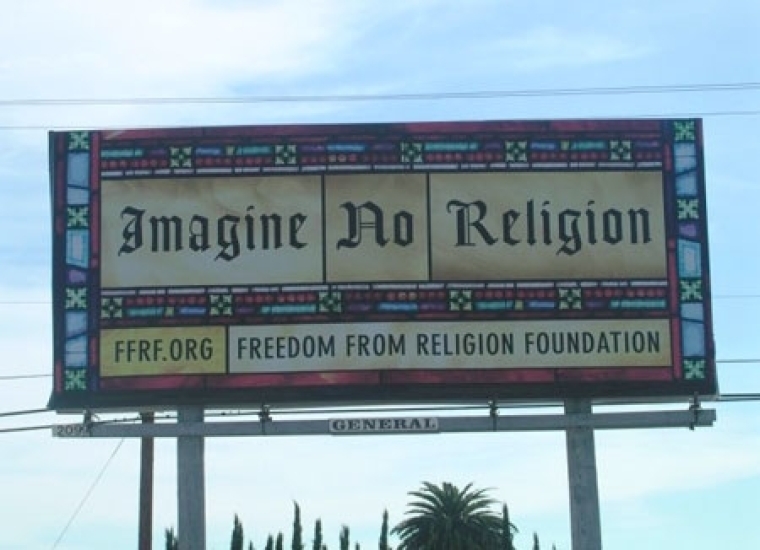Religious 'nones' increasing nationwide; 3 states see evangelical growth

Subscribe to Christian Examiner's paid e-newsletter, dubbed, "Truth, Evangelism, Revival E-newsletter," by emailing [email protected] today with the subject line "Subscribe" and following the steps provided. Please allow up to 24 hours for account setup.
Those with no particular religious affiliation, often called "nones," continue to grow in number in the United States, new data show.
Eastern Illinois University political science professor Ryan Burge explains in an essay for Religion in Public that while much of the media often frames the statistics that nones now constitute the largest religious group in the U.S., the reality is much more complicated. Nevertheless, the trend is clear.
Self-identified nones made up 22.2% of Americans in 2008, Burge noted; today they comprise 29.5%.
The aggregated data was taken from the Cooperative Congressional Election Study which has been conducted since 2006, and has a sample size that is 10 to 20 times the size of the General Social Survey, an older source of data that has regularly collected and maintained a record of concerns, experiences, attitudes, and practices of U.S. citizens since 1972.
When examined state-by-state, the CCES numbers tell a more interesting story.
From 2008–2018, Catholics saw the greatest decline as a share of the population in 24 states, though they increased their share of the population in Washington, D.C.
Similarly, evangelicals saw their numbers drop in the same way in 11 states. Mainline churches decreased by the greatest percentage in eight states.
In Arizona, Florida and Maryland, black Protestants declined the most. In Utah, Jews saw the greatest decrease in 10 years.
South Dakota was the lone state where those with no religion saw a decline, 0.3%, in its share of the total population.
South Dakota is also one of three states, along with Wyoming and Alaska, where the evangelical percentage of the population has grown from 2008–2018. The only state where mainline churches grew in the past 10 years was Vermont.
In 46 states and in Washington, D.C., the nones have grown the most.
In Hawaii, the nones grew by 22.9% in 10 years. In 22 states, nones increased by double-digit percentages.
The states where the nones grew the slowest, by 5.3% or less, were Arkansas, Kansas and Florida.
When GGS and CCES figures are examined together, the trajectory is unmistakable that Americans are moving away from religious affiliation.
In the past 25 years, from 1993–2018, evangelicals declined nationwide by 7.4%, according to the GSS measurements. Between 2008 and 2018, the nones have risen by nearly the same amount, 7.3%, according to CCES data. Using GSS data, the shift in nones is just over a half of 1 percentage point per year since 1993.
Read more from, "Religious 'nones' increasing nationwide; 3 states see evangelical growth," on The Christian Post.
— For less than the price of a cup of coffee, readers can now support truth, evangelism and revival with Christian Examiner by subscribing today (email [email protected] and remember to write the word "Subscribe" in the subject line)!